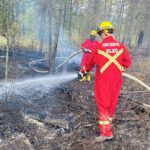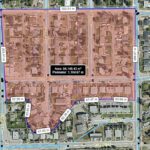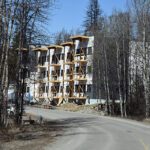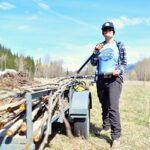Home »

SD5 dubious about Rural Education Review
The School District No. 5 (SD5) School Board of Trustees has expressed concerns and doubts about the aims of the Rural Education Review ongoing in the province.
The board/Chair Frank Lento sent the Honourable Linda Larson, Parliamentary Secretary (pictured above), a letter Jan. 30 regarding concerns about the lack of meetings being held around the province and about the Parliamentary Secretary’s direction.
In the letter, approved at the SD5 board’s January 18 meeting in Jaffray, the Parliamentary Secretary is asked to include a regional meeting in Cranbrook in addition to the nine meetings already established.
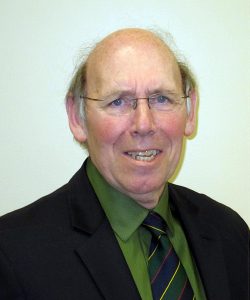
“According to the Rural Coordination Centre of BC, there are over 170 rural communities in B.C., yet government is only offering nine locations from which trustees can meet and provide input on behalf of these communities,” Lento pointed out in the letter.
“Our board finds it ironic that, given the obvious challenge travel poses to staff and Trustees of rural communities to engage in learning and sharing opportunities, the Rural Education Review Process would not include more locations from which trustees representing rural communities could attend and participate.
“For this reason, our board is requesting that an additional meeting be held in Cranbrook, in order to shorten travel times for approximately two-thirds of trustees from SD5, SD6 and SD8, some of whom will be required to travel between four and six hours to Trail or Revelstoke rather than one or two hours, were a meeting to be held in Cranbrook.”
The board letter also responded to the Parliamentary Secretary’s comments regarding Rural Education Review Process submission by SD5.
“While our board thanks you for your prompt response … we were nonetheless concerned by the lack of relevance to the content of our submission, in your response,” Lento said.
“Our submission included definitions for “rural” from the School Act, Statistics Canada and Make a Future, in addition to providing our own viewpoint that ‘it is not the definition, as determined by population or distances to major urban centres, but the factors of accessibility that is important when discussing rural education.’
“Despite the fact that our board provided definitions, not queries regarding rural education, you responded, “…Many of the questions you’ve raised about definitions etc. are also what I hope this very comprehensive consultation will address.”
Lento then informed the Parliamentary Secretary his board gets the sense the Rural Education Review is being guided.
“If this was a personal response to our submission, we are concerned that you did not take the time to properly read and understand what we believe to be a direct and concise representation of our board’s thoughts on rural education.
“If this was a standard response to receiving submissions prior to reviewing them, we are equally concerned that you ‘assume’ districts are expressly concerned about definitions. This concern is further deepened by the comments made by you (or on your behalf) on the Rural Education Review Process website.
“Having reviewed all comments posted on the site prior to our January 5 submission, our board was struck by the consistency of your comments, in that none of them appeared to relate to the feedback previously provided. Our board was left with the distinct impression that the Rural Education Review process, rather than seeking feedback on rural education, is being guided to justify a specific outcome.”
Lento and the SD5 board concluded they hope the submission response received by the board, “as well as those responses posted on the website, merely suggest a lack of careful reading and comprehension, and is not indicative of a resolve on the part of government to actively direct the results of this review process toward a predetermined conclusion.”
e-KNOW

